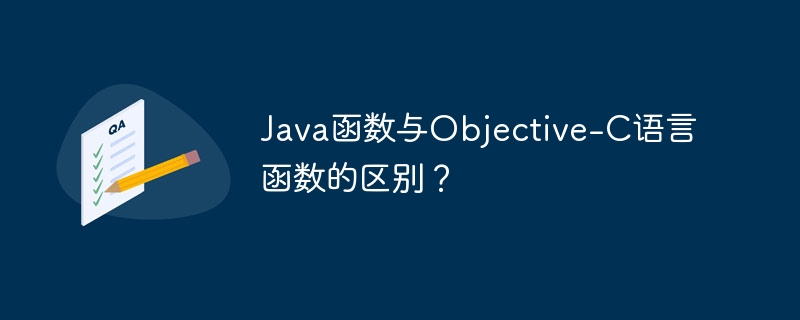
The main difference between Java and Objective-C language functions is: Statement: Java main function uses public static void main(String[] args), Objective-C uses int main(int argc, char * argv[]); method signature : Java parameters and return values are specified with parentheses, Objective-C is specified with colons outside the parentheses; Access modifiers: Java defaults to package level, Objective-C defaults to public; Return type: Java can return void, Objective-C must return a value ; Parameter passing: Java passes by value, Objective-C can pass by reference or value.

The difference between Java functions and Objective-C language functions
In Java and Objective-C languages, functions are organizational codes A block that is responsible for performing a specific task. However, there are some key differences between the two languages in terms of function definition and calling.
Function declaration
public static void main(String[] args) Declare main function. Non-static methods do not use the static keyword. int main(int argc, char * argv[]) to declare the main function. Method signature
: outside parentheses. Access Modifiers
Return type
void. void. Parameter passing
Practical case: Printing string
Java code:
public class Main {
public static void main(String[] args) {
System.out.println("Hello Java!");
}
}Objective-C code :
int main(int argc, char * argv[]) {
printf("Hello Objective-C!\n");
return 0;
}Conclusion:
There are some syntactic and semantic differences between Java and Objective-C language functions. Understanding these differences is crucial to writing effective code in each language.
The above is the detailed content of What is the difference between Java functions and Objective-C language functions?. For more information, please follow other related articles on the PHP Chinese website!
